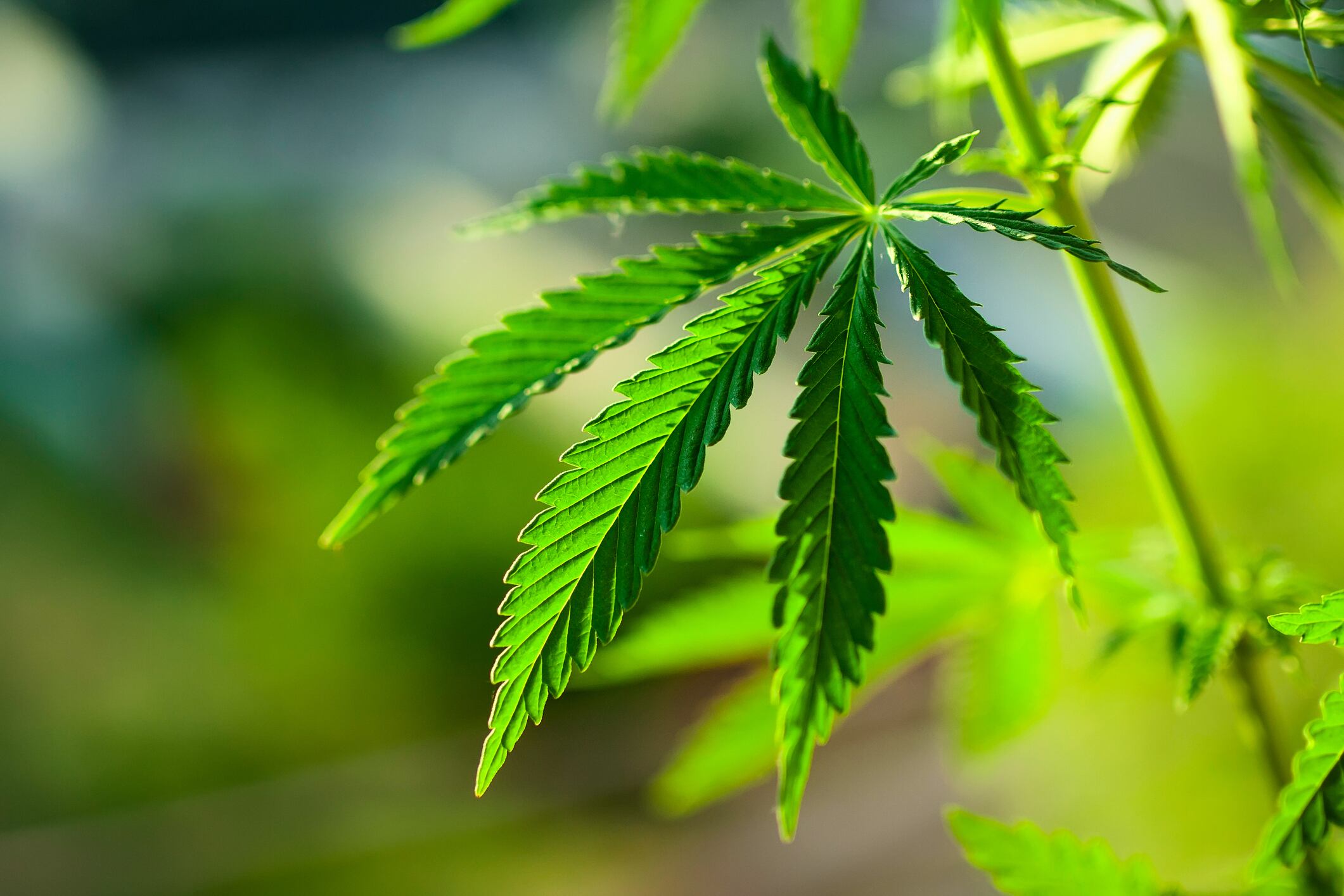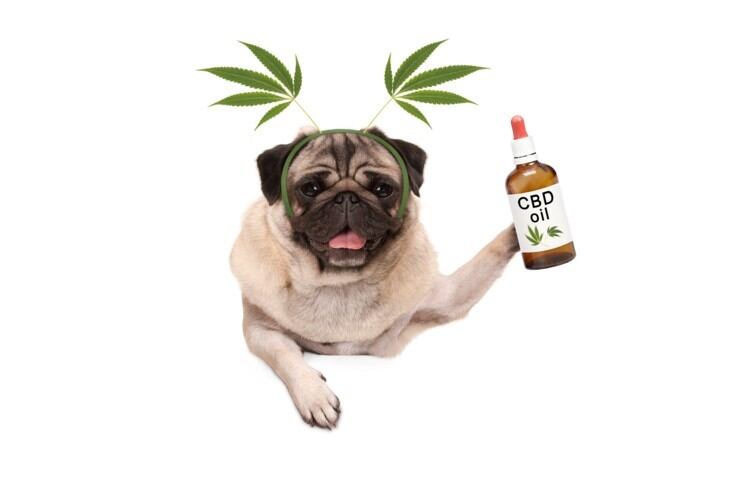The Agency also revised its consumer update about CBD to outline specific safety concerns related to CBD products, including potential liver injury, interactions with other drugs, drowsiness, diarrhea, and changes in mood.
The update, which can be found HERE, also notes that data from animal studies show that CBD can interfere with the development and function of testes and sperm, decrease testosterone levels and impair sexual behavior in males.
FDA again notes that a lot of unanswered questions remain about cumulative use of CBD and about CBD’s impacts on vulnerable populations such as children and pregnant or breastfeeding women.
During a busy Monday, the Agency also announced it had sent warning letters to 15 companies for selling various products containing CBD: 11 letters refer to products labeled as dietary supplements (for a complete list, please scroll down to the end of this article).
“Real risks that need to be considered”
“As we work quickly to further clarify our regulatory approach for products containing cannabis and cannabis-derived compounds like CBD, we’ll continue to monitor the marketplace and take action as needed against companies that violate the law in ways that raise a variety of public health concerns,” said FDA Principal Deputy Commissioner Amy Abernethy, MD, PhD
“We remain concerned that some people wrongly think that the myriad of CBD products on the market, many of which are illegal, have been evaluated by the FDA and determined to be safe, or that trying CBD ‘can’t hurt.’ Aside from one prescription drug approved to treat two pediatric epilepsy disorders, these products have not been approved by the FDA and we want to be clear that a number of questions remain regarding CBD’s safety – including reports of products containing contaminants, such as pesticides and heavy metals – and there are real risks that need to be considered.
“We recognize the significant public interest in CBD and we must work together with stakeholders and industry to fill in the knowledge gaps about the science, safety and quality of many of these products.”
CBD companies need to be talking to their Counsel…
Commenting on the FDA’s announcements, Marc Ullman, Of Counsel for Rivkin Radler, told NutraIngredients-USA that combined with the Agency’s more general warnings in the Consumer Update, the new statement clearly indicates that FDA has serious concerns regarding the use of CBD in food or supplements and calls into question prior “self-GRAS” determinations that companies might have reached.
“The Agency seems to be setting the table for more general safety-based enforcement activity in this area, but we will need to wait in see how this plays out given its consistent prior statements that CBD is not a lawful ingredient in either supplements or foods,” said Ullman.
“Coupled with last week’s 11th Circuit opinion holding that class action claims can be sustained based on allegations of sale of an ingredient FDA has determined to be adulterated – even in the absence of any other economic or quality issues – companies engaged in the CBD trade need to be talking to their Counsel about what they should be considering going forward.”
The GRAS question
As mentioned by Ullman, the FDA statement shines the light on the GRAS status of CBD. At least two companies have completed self-affirmed GRAS affirmations for CBD: CV Science and Manitoba Harvest. However, the FDA now states that “the FDA is not aware of any basis to conclude that CBD is GRAS among qualified experts for its use in human or animal food”.
The Agency also stated that there is no authorization for the use of CBD as a food additive, and that dietary supplement products formulated with CBD “do not meet the definition of a dietary supplement under the FD&C Act”.
Loren Israelsen, President of the United Natural Products Alliance, told us that the Agency seems to be closing off the GRAS affirmation pathway by noting in several of the warning letters that CBD in foods would require a food additive petition. “This is significant,” he said.
Israelsen added that the revised Consumer Update and warning letters are a significant, concerted and highly orchestrated effort by FDA to put the brakes on the CBD market.
However, “the agency has yet to target companies that are not making claims, but it has expanded its concerns over common claims, such as stress, anxiety and pain,” he said. Israelsen also added that FDA is requesting health practitioners to submit AERs.
CV Sciences disappointed by FDA’s inappropriately alarmist tone
CV Sciences is one of the few companies to have self-affirmed the GRAS status of its hemp extract, with some of the toxicological data published in the Journal of Toxicology (Marx et al., 2018).
The company issued the following statement: “CV Sciences’ top priority is consumer safety. We have conducted and published pre-clinical toxicology studies to establish the safety of our unique hemp extract made through a proprietary process. FDA stated it cannot conclude that CBD is generally recognized as safe (GRAS), because the GRAS designation is directly linked to a specific ingredient under the specific conditions of use in labeling. CV Sciences has scientific studies to support the safety of our specific ingredients that provides a specific amount of CBD with other naturally-occurring hemp phytocompounds. We believe FDA’s comments that “CBD is not GRAS” are directed toward companies that have piggy-backed on our science with significantly different ingredients and different levels of CBD.
The company also expressed disappointment with the tone of the FDA’s communications, stating: “CV Sciences supports FDA’s recent enforcement actions against bad actors who make unsubstantiated claims that CBD-containing products can treat cancer, Alzheimer’s disease, opioid withdrawal, etc. These companies put consumers at risk, while giving responsible companies a black eye. That said, CV Sciences is disappointed that FDA’s consumer update, released simultaneously with the warning letters, used an inappropriately alarmist tone.
“CV Sciences is concerned that FDA is creating a narrative that questions the safety of CBD to try to address the significant number of fly-by-night companies entering the CBD industry. There are more direct ways for FDA to address bad actors, while still working with responsible companies to establish the appropriate scope of hemp-derived ingredients for supplements based on sound research.
“CV Sciences continues to advocate the industry’s limitation of CBD to dietary supplements and topical applications and not add CBD to food. We stated this at the May 31, 2019 FDA public meeting and continue to stand by them. Supplements allow for a controlled serving size and labels to warn sensitive sub-populations to avoid, food does not. CV Sciences continues to be optimistic that FDA has a shared goal to create a clear, regulatory path for science-based, hemp-derived CBD ingredients as dietary supplements, which provide an appropriate and safe level of CBD. FDA has the authority to develop regulation that allows for CBD as a dietary supplement, provided responsible industry steps up with sound science and CV Sciences welcomes this opportunity.”
Does the solution sit with Congress?
Steve Mister, president and CEO of the Council for Responsible Nutrition (CRN), told us that the FDA was “creating the appearance of activity at the Agency, but the alarmist tone in the statements is not helping consumers.”
“Consumers are increasingly confused,” said Mister, “and this week’s statements are only going to increase consumer alarm.”
CRN does consider companies for membership who are selling products formulated with CBD, he added, but the standards are the same for any dietary supplement product: Companies cannot make illegal disease claims; they must register their facility in accordance with the Bioterrorism Act (2002); products must be made according to current Good Manufacturing Practices (cGMPs) and it’s preferred if there are third party audits in place. Products must also be labeled appropriately with an adverse event reporting contact.
Mister said that there is some risk if you’re selling these products, and that CRN is working on its own risk assessment of the ingredient, but intimated it appeared unlikely that a solution to the CBD question was going to come from the FDA.
“CRN is increasingly of the opinion that Congress is going to have to solve this problem,” he added.
More warning letters to come?
Daniel Fabricant, PhD, President and CEO of the Natural Products Association (NPA), told NutraIngredients-USA these announcements are “exactly why we have been pushing for the agency to establish a level at which (based on existing data, like WHO) there’s not a public health concern.
“While the agency has certainly strengthened its language, these are still only 15 additional administrative actions, nothing that is considered a judicial or final agency action yet, which the longer the agency remains silent on it is likely that new products, albeit probably ones without claims may still come to market, which doesn’t address the fundamental issue of keeping consumers safe.”
The Agency did state that the companies receiving the warning letters have 15 working days to respond, and that failure to correct the violations promptly may be met with other actions (seizure, injunction) without further notice to the warning letter recipient.
UNPA’s Israelsen said his organization anticipates that additional warning letters will be issued by the Agency, before adding: “The viewpoints and perspectives of the respective interests in this issue are becoming clearer as the anticipated struggle to determine the status of CBD and the other cannabinoids has begun.”
Warning letters
The companies that received the warning letters are:
Koi CBD LLC, of Norwalk, California
Pink Collections Inc., of Beverly Hills, California
Natural Native LLC, of Norman, Oklahoma
Whole Leaf Organics LLC, of Sherman Oaks, California
Infinite Product Company LLLP, doing business as Infinite CBD, of Lakewood, Colorado
Apex Hemp Oil LLC, of Redmond, Oregon
Bella Rose Labs, of Brooklyn, New York
Sunflora Inc., of Tampa, Florida/Your CBD Store, of Bradenton, Florida
Healthy Hemp Strategies LLC, doing business as Curapure, of Concord, California
Private I Salon LLC, of Charlotte, North Carolina
Organix Industries Inc., doing business as Plant Organix, of San Bernardino, California
Red Pill Medical Inc., of Phoenix, Arizona
Sabai Ventures Ltd., of Los Angeles, California
Daddy Burt LLC, doing business as Daddy Burt Hemp Co., of Lexington, Kentucky



